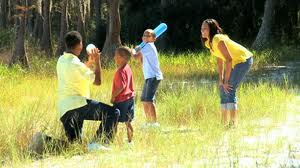
An after-school nanny can be the perfect solution for working parents if children are in sports, have appointments, music lessons or just need extra help with homework. She can help the entire family, having the homework, shopping, dinner, laundry and errands completed by the time the parents walk in the door. A nanny can provide a customized solution and quality family time at day’s end.
Follow these key steps to make sure you get a perfect fit for your family and a long-term solution. Give some thought to what your needs are and bring a detailed list of expectations and needs to the interview and ask each candidate the same questions.

What qualities and skill sets are most important ?
Does she need to be able to do algebra or go on the internet and monitor school assignments?
Is she a good role model? Find out what her values are, and during the interview, ask to see her Facebook page. School-aged children are very alert to the values of their nanny and tend to admire them because they are closer to their own age. Nannying is different from all other childcare positions in that the nanny is largely unsupervised. Look for someone who will make the right choice when no one’s looking.
What household chores is she willing and able to do well?
What were her responsibilities in her last position?
Involve your children in the interviewing process Do they like her personality? They’re old enough to voice their opinions now.
Does the nanny agree with your parenting style
How would she settle sibling squabbles? A dynamic and energetic leader with a good sense of humor helps
Does she show a preference for one age or sex over another?

Can this be a long-term match?
Frequently a college student makes a good choice, since they’ll have similar school holidays and can help in the summer with longer hours. Is she able to keep her job her top priority and work her classes around the family schedule for a year of two? Usually a freshman or sophomore can give a longer commitment than an upperclassman.
How’s her Driving? Is she a responsible driver?
Ask for her three-year Motor Vehicle Record
Is she mature enough to handle an emergency?
Has she driven children before? Ask her last employer about her driving. During a trial week, have her drive to the children’s school and back and see how carefully she drives.
What’s the cost of an after-school nanny? $15 per hours seems to be the going rate for an after school nanny working 20 hours per week in the Phoenix area. Caring Nannies follows the recommendation of the IRS to reimburse nanny mileage at the current rate of 56.5 cents per mile. If you’re paying a household employee over $1800 per year, the IRS requires that a 1040-ES is filed along with a 1040 tax form and a W-2 form. Best to pay via check or direct deposit and not cash so that you have accurate documentation. If both parents are working, your cost should be a wash.




